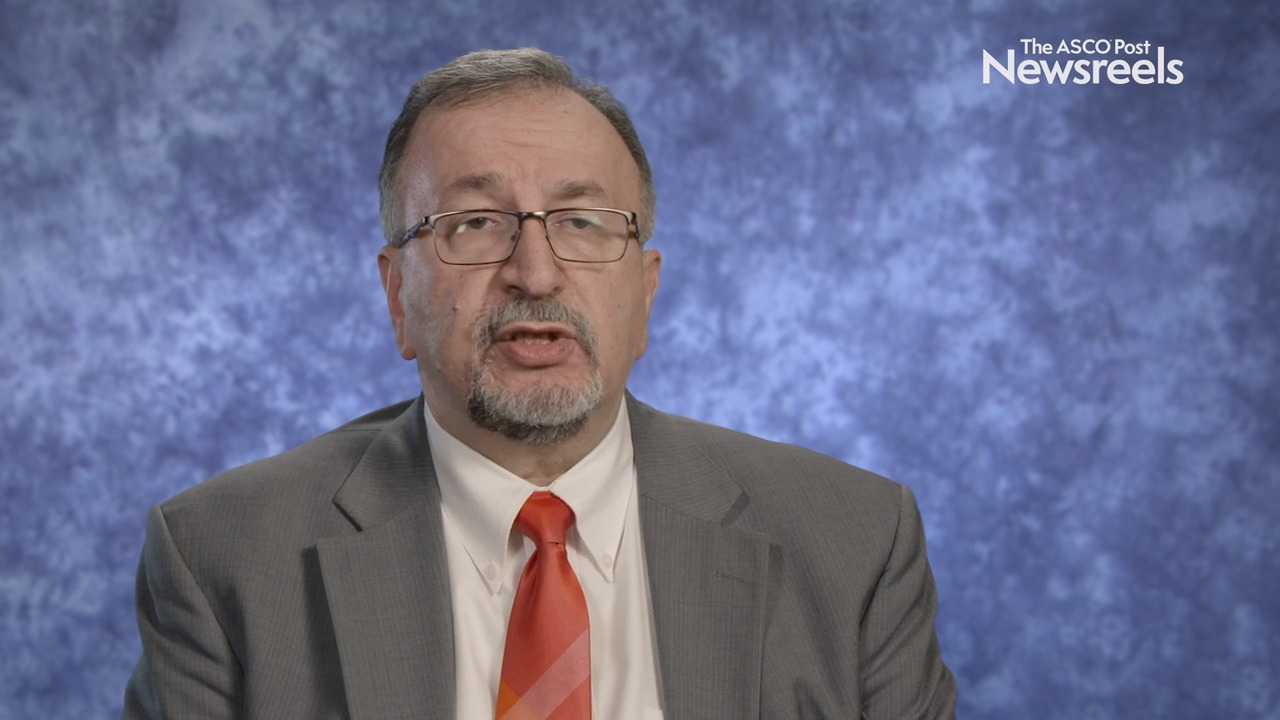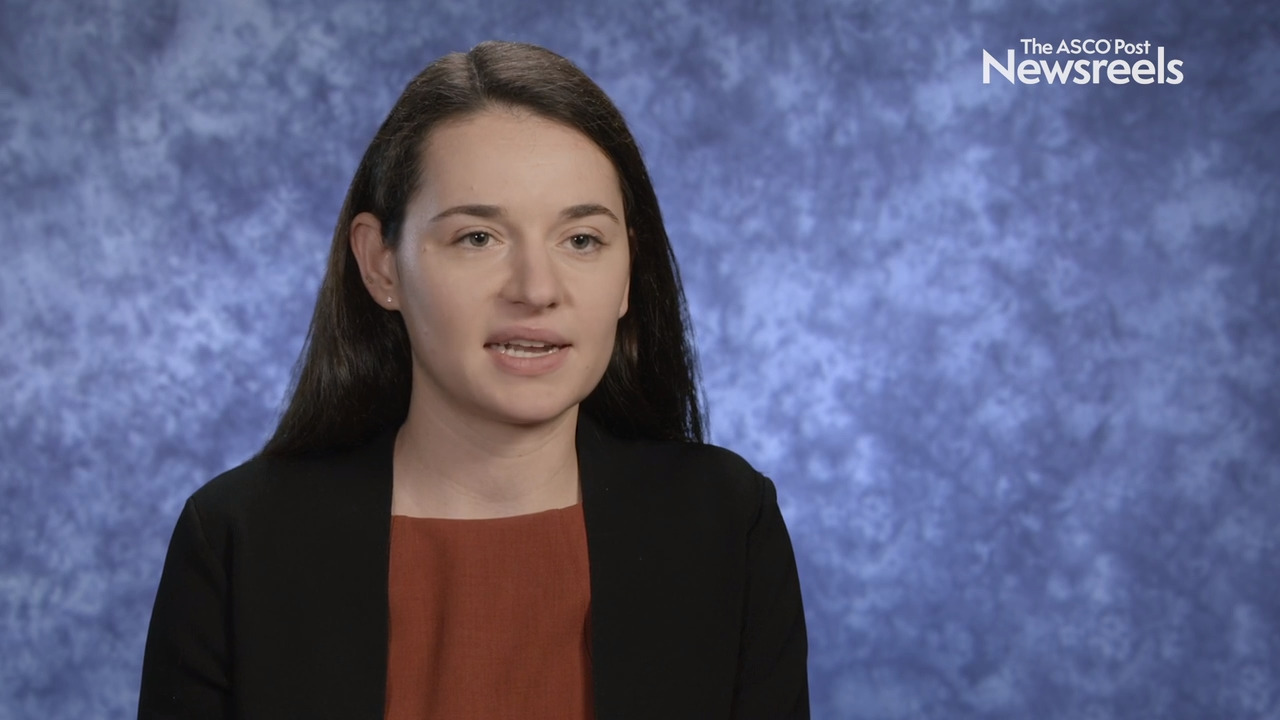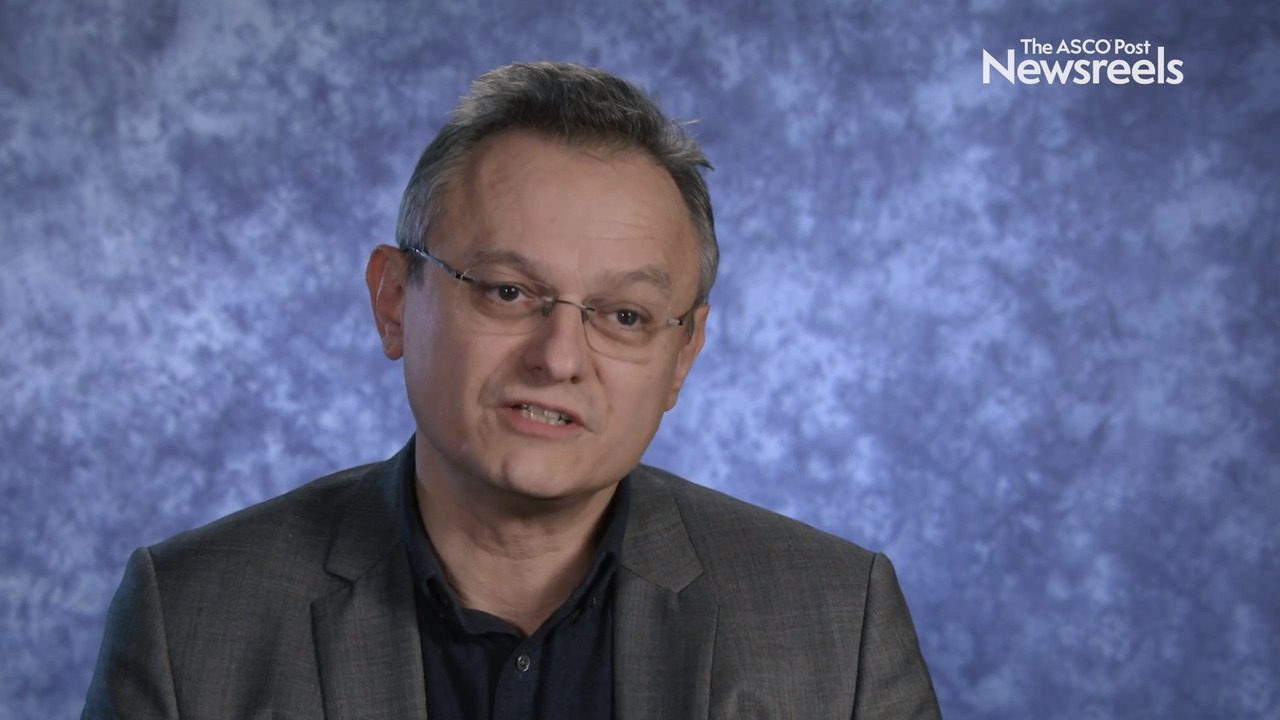Peter R. Galle, MD, on Atezolizumab/Bevacizumab vs Sorafenib for Hepatocellular Carcinoma: Patient-Reported Outcomes
2020 Gastrointestinal Cancers Symposium
Peter R. Galle, MD, of the University Medical Center, Mainz, discusses patient-reported outcomes from this phase III study, which showed the combination of atezolizumab plus bevacizumab vs sorafenib is well tolerated and may represent a new standard of care in the first-line setting for unresectable liver cancer (Abstract 476).
Eyal Meiri, MD, of the Cancer Treatment Centers of America at Southeastern Regional Medical Center, discusses his findings on heavily pretreated patients with colorectal cancer with high tumor mutational burden. Monotherapy with pembrolizumab showed antitumor activity, which merits further study to confirm efficacy (Abstract 133).
Danielle S. Bitterman, MD, of the Harvard University Radiation Oncology Program and Massachusetts General Hospital, discusses an analysis of genomic and clinical data from 97 patients with pancreatic ductal adenocarcinoma with circulating tumor DNA. Mutations were most frequently detected in patients with locally advanced and metastatic disease (Abstract 753).
Scott Kopetz, MD, PhD, of The University of Texas MD Anderson Cancer Center, discusses phase III findings from the BEACON CRC trial, which had demonstrated that the triplet regimen of encorafenib, cetuximab, and binimetinib significantly improved overall survival in patients with a BRAF V600E mutation. The new analysis showed that the regimen also led to substantial improvement in patient-reported quality of life compared with current standard of care (Abstract 8).
Franck Pagès, MD, PhD, of the Hôpital Européen Georges Pompidou, discusses study findings from the prospective IDEA France cohort study of patients with stage III colon cancer treated with mFOLFOX6. The study showed that patients with an intermediate or high Immunoscore seemed to benefit from 6 months of mFOLFOX6 treatment compared with 3 months (Abstract 10).
Thomas Yau, MBBS, of the University of Hong Kong, discusses this triplet combination, which yielded better responses than doublet combination therapy in patients with advanced liver cancer, but with more severe adverse events and more treatment discontinuations (Abstract 478).





